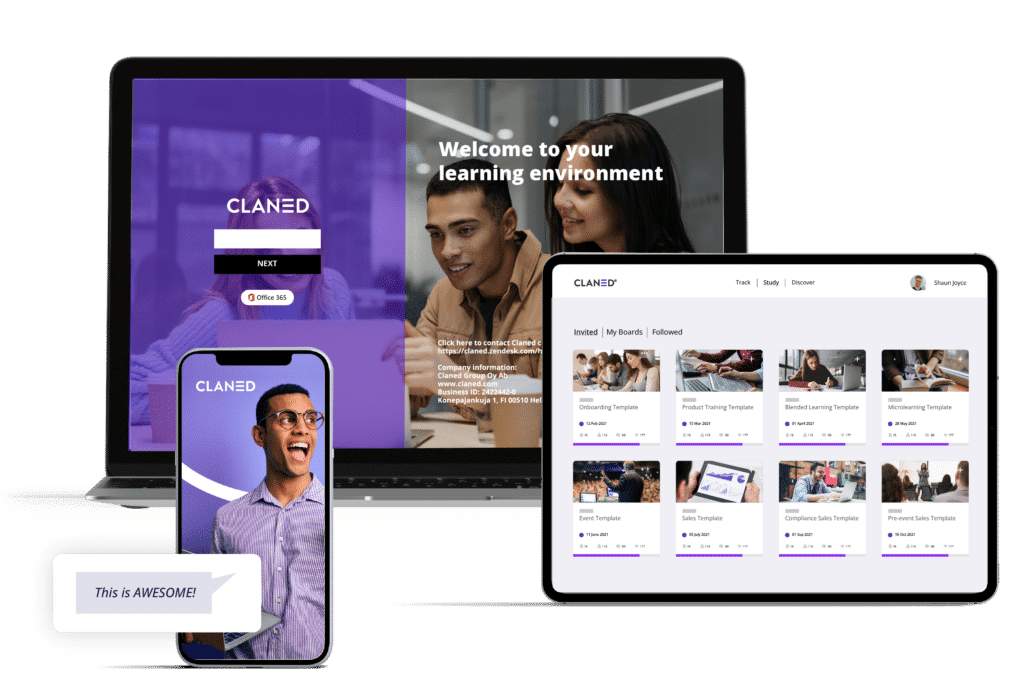In a world where change is the only constant, the power of continuous learning in human resource training programs shines as a beacon of progress and innovation. Imagine a workplace that not only adapts to the evolving landscape but thrives within it, fostering a culture where growth and development are not just encouraged but ingrained in its very essence.
This is the transformative promise of continuous learning in HR training—a strategic initiative that aligns organizational goals with personal development, sparking creativity, boosting productivity, and solidifying employee loyalty like never before.
As we embark on this exploration, let’s unveil how continuous learning serves as the cornerstone of nurturing talent and securing a competitive advantage, setting the stage for a future where learning and success go hand in hand.
Strategic Development of HR Training Programs: A Path to Nurturing Talent and Competitive Advantage
In the realm of human resources, the adoption of continuous learning programs represents a pivotal shift in the approach to training and development.
This transformation is characterized by a strategic development process that seamlessly aligns training efforts with organizational goals, offering personalized learning experiences and harnessing the latest educational technologies.
Encouraging Innovation and Creativity through Continuous Learning
Fostering a culture of innovation and creativity is crucial in the competitive landscape of modern business, and continuous learning is at the heart of this transformative process.
By integrating continuous education into the fabric of an organization, you encourage employees to embrace new methods, think critically, and develop effective problem-solving skills, all of which are fundamental to nurturing an innovative and creative workforce.
Cultivating a Culture of Innovation
Continuous learning is beneficial in many ways, but especially in:
- Fostering new perspectives and ideas
- Urging employees to think outside the conventional box
- Approach challenges with fresh, innovative solutions
This constant exposure to varied concepts and methodologies not only fosters an open-mindedness essential for innovation but also dismantles the traditional “this is how we’ve always done it” mentality. In such an environment, creativity flourishes as employees feel encouraged to explore uncharted territories.
Enhancing Problem-Solving Skills
The role of continuous learning in sharpening critical thinking skills cannot be overstated. As employees engage with new information and insights, they become more adept at dissecting complex issues, leading to strategic and well-informed decision-making.
This enhanced ability to analyze and solve problems effectively is directly linked to the capacity for innovation, as it allows for the crafting of creative solutions to the challenges faced by the organization.
Boosting Creativity
The infusion of new knowledge through continuous learning serves as a powerful source of inspiration, sparking creativity among employees. Learning about cutting-edge technologies, innovative methodologies, or groundbreaking theories encourages the application of these insights in novel ways.
Moreover, the cross-pollination of ideas from different disciplines, a common feature of continuous learning programs, can lead to the development of groundbreaking innovations and creative solutions that might not have emerged in a more siloed learning environment.
Encouraging Risk-Taking
A culture that values continuous learning inherently creates a safe space for experimentation. Employees feel supported in their endeavors to try new ideas, knowing that the focus is on growth and learning rather than on penalizing failure.
This type of atmosphere:
- Rewards curiosity
- Motivates employees to push boundaries of their creativity and innovation
- Leads to significant advancements and breakthroughs for the organization
Boosting Productivity
One key benefit of continuous learning is the boost in productivity it creates. And a productive workforce is something everyone wants as it makes the entire organization more agile and better equipped to face new challenges.
Skill Improvement: Stay Current with Trends
In an ever-changing business landscape, staying abreast of the latest industry trends, technological advancements, and best practices is crucial.
Continuous learning enables employees to regularly update their knowledge and skills, ensuring they remain competitive and effective in their roles.
Example: As new software updates are released or new methodologies are developed, employees who are engaged in continuous learning can quickly adapt and incorporate these advancements into their work. This ongoing skill enhancement fosters a culture of excellence and innovation, driving productivity by ensuring that the workforce is not just keeping pace with industry standards but often exceeding them.
Time Management: Advanced Skills Lead to Quicker Task Completion
One of the most tangible benefits of continuous learning in HR training is improved time management, resulting from enhanced efficiency and effectiveness in task completion.
Employees with advanced skills can perform their duties more quickly and with greater accuracy than those who do not invest in their professional development.
Example: You provide a continuous learning opportunity to learn advanced Excel functions. Mastering these can drastically reduce the time required for data analysis, freeing up employees to focus on other tasks and projects.
This efficiency gain is not limited to technical skills. It also applies to soft skills such as:
- Problem-solving
- Communication
- Leadership
Employees who are adept in these areas can navigate challenges more smoothly, make decisions more quickly, and lead their teams more effectively, all of which contribute to the overall productivity of the organization.
Moreover, continuous learning fosters a mindset of efficiency and innovation. Employees who are encouraged to learn and grow are more likely to seek out and suggest improvements to workflows and processes, identifying bottlenecks and proposing solutions that can save time and resources.
This proactive approach to problem-solving and improvement further enhances productivity, creating a virtuous cycle where learning leads to innovation, which in turn leads to even greater efficiency and productivity.
Improving Employee Retention
Improving employee retention is a critical challenge that organizations face in today’s dynamic workforce landscape. A significant factor contributing to an employee’s decision to stay with a company is their perception of growth and development opportunities.
In fact, 76% of employees are more likely to stay if the company they work for invests in continuous learning and development programs.
Career Growth: Cultivates a Sense of Progress
Employees are more likely to remain with a company that actively invests in their professional growth. Continuous learning programs offer a pathway for:
- Career advancement
- Acquiring new skills
- Enhancing their competencies
- Preparing them for future roles within the organization
This sense of progress is crucial for job satisfaction and engagement, as it gives employees a clear vision of how they can evolve within the company.
By providing structured learning and development opportunities, organizations can demonstrate their commitment to employee growth, making individuals feel valued and part of the company’s long-term plans.
This perception of being invested in not only motivates employees to contribute their best work but also encourages them to envision a future within the organization, thereby reducing the likelihood of looking for opportunities elsewhere.
Company Loyalty: Reduces Turnover Rates
The correlation between continuous learning opportunities and company loyalty is well-documented. Employees who feel that their employer is dedicated to their personal and professional development are more likely to develop a strong sense of loyalty to the organization.
This loyalty translates into lower turnover rates, as employees are less inclined to leave a company that is actively contributing to their career success.
Moreover, the acknowledgment that an employer values and invests in their development fosters a positive workplace culture, where employees feel respected and appreciated.
Such an environment not only attracts top talent but also retains it, as the emotional and professional bonds formed with the organization create a powerful incentive to stay.
Furthermore, continuous learning programs can be tailored to align with the company’s strategic goals, creating a symbiotic relationship where both the employee’s and the organization’s objectives are met.
This alignment ensures that employees are developing skills that are not only beneficial for their career growth but also directly contribute to the success of the company.
As employees see the impact of their work and growth on the organization’s achievements, their sense of belonging and loyalty deepens, further cementing their commitment to the company.
Customizing Learning Pathways
A really cool part of online continuous learning platforms is the ability to create custom training. Understanding that each employee’s learning journey is unique is crucial for the development of impactful HR training programs.
With a culture of learner agency and autonomy, individuals are afforded the opportunity to progress at their own pace and select subjects that align with their personal and professional growth ambitions.
This approach not only enhances engagement and motivation among the workforce but also ensures that the acquired skills and knowledge are relevant and retained, maximizing the impact of the training.
Example: You’re creating training for recruiters. Each recruiter will have a different set of skills or knowledge as their base line. They’ll get frustrated or bored if they have to go through learning about things they’ve already mastered. Instead, you can customize their areas for continuous learning to focus on where they need to improve.
Conclusion: Cultivating a Future of Endless Possibilities
From fostering innovation and creativity to boosting productivity and improving employee retention, the impact of continuous learning extends far beyond the confines of traditional training. It redefines the very nature of professional development, transforming it into a continuous voyage of discovery and growth.
By embracing continuous learning, organizations not only invest in the immediate enhancement of skills and knowledge but also lay the foundation for a future where adaptability, innovation, and resilience are intrinsic to their culture. This forward-thinking approach ensures that employees feel valued and engaged, fostering a sense of loyalty and commitment that transcends the conventional employer-employee dynamic.
In a world that never stops changing, the commitment to continuous learning stands as a testament to an organization’s dedication to excellence and its unwavering belief in the potential of its people.
As we look ahead, let’s carry forward the lessons of today to cultivate a tomorrow brimming with endless possibilities, where continuous learning lights the path to success and fulfillment for individuals and organizations alike.







